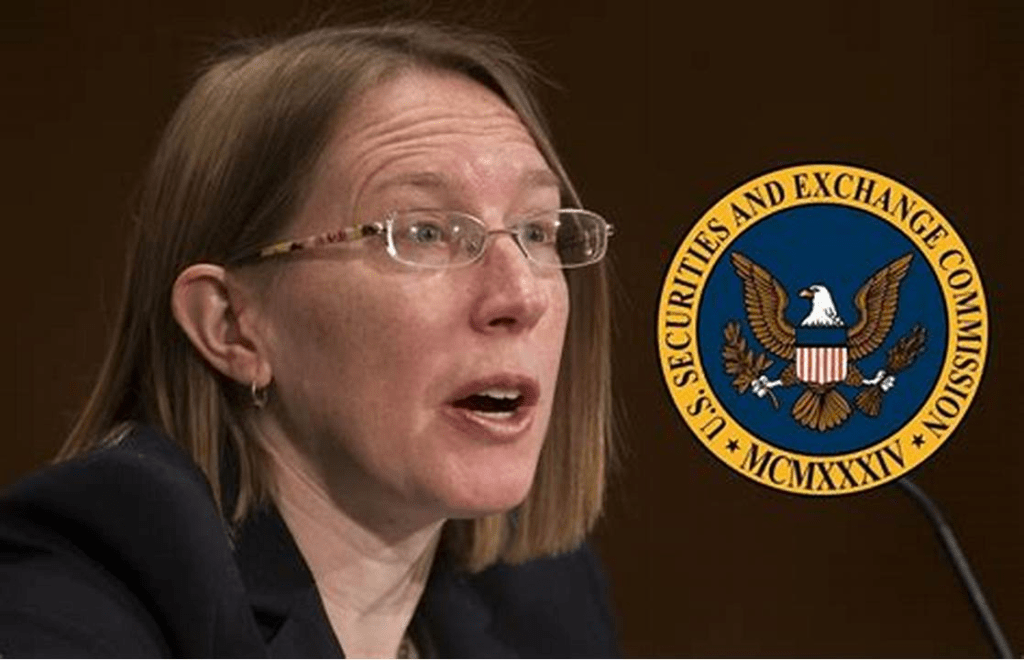The cryptocurrency market is undergoing significant changes, and the U.S. Securities and Exchange Commission (SEC) is at the forefront of these regulatory developments. In this article, we dive into the SEC’s recent actions, including their second roundtable discussion on crypto regulations, and explore what it means for the future of the industry.

Table of Contents
SEC’s Latest Roundtable Discussion on Cryptocurrency
On April 11th, the SEC will host its second roundtable discussion on cryptocurrency regulations, marking another pivotal moment in the ongoing efforts to address the legal challenges facing the digital asset industry. This roundtable brings together industry experts, policymakers, and stakeholders to explore the potential regulatory frameworks for digital assets in the United States.
The roundtable is part of the SEC’s broader initiative led by Commissioner Hester Peirce, focusing on creating clear guidelines for classifying and monitoring digital assets. With significant changes on the horizon, this discussion is set to provide insights into the future of cryptocurrency regulations.

Hester Peirce
SEC’s Efforts to Regulate the Crypto Market
The SEC’s focus on regulating cryptocurrency is part of a larger effort to balance investor protection with the need for innovation in the space. The roundtable is expected to address a range of critical issues, from the classification of digital assets to the protection of investors from fraud and market manipulation.
SEC’s Second Roundtable: What’s on the Agenda?
The upcoming roundtable will discuss several key topics, including the application of existing securities laws to cryptocurrency and the potential development of new legal frameworks for digital assets. Here are some of the central themes:
- Digital Asset Classification: Should cryptocurrencies be considered securities, commodities, or a new class of assets altogether?
- Regulating Cryptocurrency Exchanges: How can the SEC ensure that crypto exchanges operate transparently and fairly?
- Investor Protection: What steps can the SEC take to safeguard investors from fraud and market manipulation?
- Encouraging Innovation: How can the SEC promote innovation in the cryptocurrency industry while maintaining financial stability?
These are just a few of the questions that will be explored during the discussion. Let’s take a closer look at the key speakers and their perspectives.
Speakers and Their Perspectives
The roundtable will feature insights from a variety of industry leaders, each bringing their unique expertise to the table. Below is a summary of the speakers and the topics they will address:
| Speaker | Organization | Role | Discussion Topic |
|---|---|---|---|
| Tyler Gellasch | Healthy Markets Association | CEO and President | Transparency and reducing conflicts of interest in capital markets |
| Jon Herrick | New York Stock Exchange (NYSE) | Product Director | Product development and innovation in exchange markets |
| Richard Johnson | Texture Capital | CEO and Founder | Digital securities and tokenization |
| Dave Lauer | Urvin Finance and We The Investors | Co-founder | Connecting public companies with retail investors |
| Katherine Minarik | Uniswap Labs | Legal Director | Legal and regulatory issues related to decentralized exchanges |

Jon Herrick – Product Director of New York Stock Exchange (NYSE)
The Key Issues Under Discussion
During the roundtable, several critical issues are expected to be discussed in depth, such as:
- Classification of Digital Assets: A major question remains whether cryptocurrencies should be treated as securities, commodities, or something entirely new. The SEC’s decision on this matter could reshape the industry.
- Exchange Regulation: Ensuring transparency in cryptocurrency exchanges is a central concern. How can the SEC enforce fairness in this rapidly growing sector?
- Protecting Investors: With the increasing prevalence of fraud and manipulation in the market, what measures can be implemented to protect investors effectively?
SEC’s Efforts: A Balanced Approach to Regulation
The SEC’s approach to regulating the cryptocurrency market has been both praised and criticized. On one hand, the SEC’s efforts are aimed at safeguarding investors and maintaining financial stability. On the other hand, some argue that the SEC’s slow pace in creating clear regulations creates uncertainty, hindering growth and innovation in the crypto space.
While some believe the SEC is moving too quickly with overly strict regulations, potentially stifling innovation, others think the agency has been too lenient, allowing harmful practices to proliferate. One thing is clear: the SEC is committed to finding a balanced approach.
What Does the Future Hold for Cryptocurrency Regulation?
Looking ahead, several key trends are likely to shape the future of cryptocurrency regulation:
- International Collaboration: Countries around the world are increasingly working together to create a unified approach to regulating digital assets.
- Investor Protection: Future regulations will likely place greater emphasis on safeguarding investors from fraudulent activities and market manipulation.
- RegTech: The rise of regulatory technology (RegTech) will play a significant role in helping cryptocurrency firms comply with new regulations.
As these trends develop, it is clear that the SEC’s regulatory approach will continue to evolve, adapting to the fast-paced nature of the crypto industry.
Conclusion: The SEC’s Role in Shaping the Future of Crypto Regulation
The SEC’s second roundtable marks an important step in defining the future of cryptocurrency regulation. While challenges remain, the SEC’s proactive engagement with industry experts and stakeholders shows that the agency is taking a thoughtful and measured approach to regulation.
With the evolving landscape of digital assets, finding a balance between innovation and investor protection will be crucial. The outcomes of these discussions will have long-lasting implications for the crypto industry, and companies like Click Digital will need to stay informed to navigate these changes effectively.
As the SEC continues its work, the crypto market remains in a state of flux. However, one thing is certain: the regulatory landscape will continue to shape the industry, and businesses will need to adapt accordingly to thrive in this dynamic environment.
By staying engaged with these developments, companies can better anticipate changes and position themselves for success in the rapidly changing world of cryptocurrency regulation. Keep an eye on the SEC’s next steps and how they will impact the future of digital assets!

